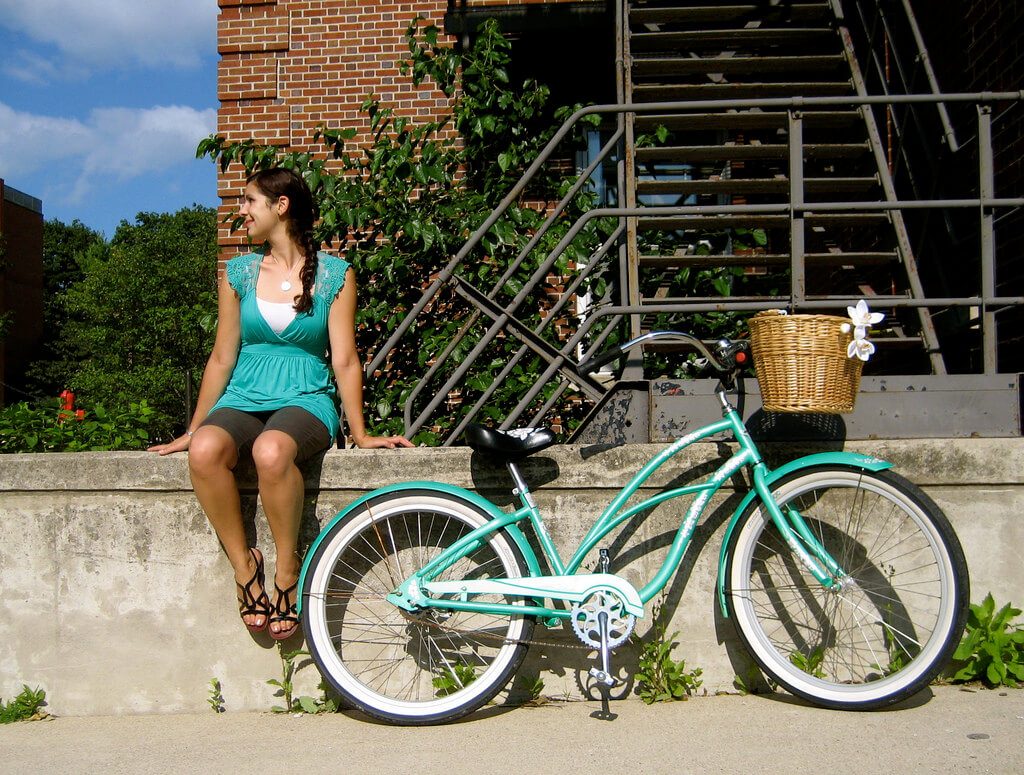The Cross Canada Cycle Tour Society December 2018, Volume 35, Issue #12
President’s Report John Pringle
Stuff and Such
The cost of doing business – The Club was forced to get our Board leadership candidates farther-afield in 2018. Treasurer is always a difficult position to fill. We were blessed all those many years when Bruce McLean kept the books. He was thorough, efficient and timely. On a couple of occasions during his long tenure he stepped aside while retaining the position of Office Manager. But in both cases his replacements either left without finishing a term or remained, but was a “one term wonder”. When we went farther from home-base we landed Dawn Minnet of Whistler. Given our membership from Comox Valley to the Ottawa Valley, this wasn’t far. But there are costs involved in having a key Board member outside the Vancouver/Victoria area. Similarly, we attracted George Zorn from Salmon Arm as H&S Director. He’s been a workhorse in attracting h&s leaders. But he’s been, as well, willing to look at our long-term membership numbers and events (h&s & tours) databases and has spent hours carrying out data analyses to help give us insights into Club behaviour.
Both Dawn in Whistler, Ed Fudge our Chapters Director in the Comox Valley and let’s not forget Paul Hough, our very capable Secretary in the Ottawa Valley: A dynamite team. But, why shouldn’t we have Board members from afar when >200 members pedal in their home environments of Ottawa, the Okanagan Valley, Portland, Seattle, etc.? And by the way, those from afar are “punching above their weight” when it comes to organizing Club events.
Because we have Board members from across the country it made logistical and financial sense to implement Board meetings via tele-conferencing. A cost savings no doubt, in that a few of us no longer travel near-monthly to Tsawwassan, but we do pay for Ed to occasionally travel from Comox to be with Victoria-based members. And furthermore, we decided when implementing tele-conference meetings that at least one face-to-face meeting would be important. Just fair warning when you notice an airfare and vehicular mileage charges for George in this year’s expenditures sheet. The cost of doing Club business in a changing world. George from Salmon Arm, Dawn from Whistler, and no, not Paul from Ottawa (much as I think it important, we didn’t have the guts to charge the Club for an Ottawa air fare), this our first year. Dawn will reckon the costs and we’ll make a sensible decision in 2019.
E-Bikes – In the September 2017 President’s Report I had discussed e-bikes and reported to you that the Board welcomes e-bike riders, unlike BAC, for example, where it was noted that e-bikes were shunned on one tour. At that time, as near as we could gather, there were three E-bike riders in our Victoria chapter; now there are ten. Maybe more. Our insurer warned our pedal-assist riders may not be covered. We will rewrite Club policy that will limit our members to e-bikes that are pedal-assisted and governed not to exceed 32 km/hr. Hopefully, when the dust settles, this will satisfy our insurer we’ll keep both our insurance and e-bike riders.
Barb Wilson, a treasure from Ottawa – A while ago I was touring with Carole LaFlamme of the Ottawa Valley group, now the National Captital Region Chapter. She frequently mentioned her “President” as the lifeblood of the group. Now she would go on to say that they really didn’t have a “President” as at the time, before our change in governance structure and the formation of chapters, that there was only one CCCTS President, and he was located in BC. But Barb is the glue holding the Ottawa group together: They hold meetings; they offer an h&s and a tour annually; they hold formal socials; when the leaves and snow falls they hike and ski. Barbara Wilson runs the show, and what a fun-loving, but safe show it is. One supporter notes, “She is the absolute perfect candidate for the presidency; efficient, knowledgeable, confident, she runs a tight ship and everyone loves her for it. She always gets things done in an orderly fashion … (She’s) able to delegate.” In the fall, “She takes us on wonderful hikes in beautiful … Gatineau Park.” Another says, “She is committed to CCCTS and welcoming to new members …she appreciates help … and thank(s) members for their support.” And finally, “As a tour leader … (she) …emphasizes safety as well as courtesy on the roads”. Barbara’s the whole meal; the real deal. Little wonder when we offered the concept of a chapter-ship, she was the first to climb aboard with >110 members. We are so pleased to have you Barbara, and your superb leadership skills.
AGM – is Monday December 3rd at Sidney’s Mary Winspear Centre, 2243 Beacon Avenue. It’s bright, modern, cheery, and no doubt will be resplendent in festive decorations. The meeting begins at 11:00 a.m. and we’ll be eating a CCCTS-sponsored lunch by~12:45 p.m. Meet and hear from your Club directors: Learn what it takes to keep the wheels turning behind the scenes; hear about new H&S planned for Seattle; Doris Maron’s second tour in two years; and, Bruce Daykin’s eastern Canada offering and much more.
The newly-configured CCCTS Victoria Chapter will meet in the same venue on the same morning; 10:00 a.m. to 10:50 a.m. to pass their new constitution. Do plan to attend both events.
Merry Christmas and the very best in the New Year.
Upcoming Tours
Tour Report
Upcoming Hub & Spoke
Welcome New Members
| Lani | Schultz | Oak Bay | BC |
| Margo | Mactaggart | Vancouver | BC |
| Chris | Oram | Vancouver | BC |
| Craig | Miller | Victoria | BC |
| Albert | Fiedler | Maple Valley | WA |
| Chris | Hayes | Ottawa | ON |
| Donna | Hayes | Ottawa | ON |
| Christiane | Selenz | Victoria | BC |
Pedaling Towards Happiness: 7 Mental Health Benefits of Riding Bikes by Hilary Angus
Photo by Sandra
We all know that riding bikes is great for our physical health. It improves cardiovascular fitness, reduces body fat, builds strength, and improves circulation. But what about our mental health?
The link between exercise and improved mental health is not new, many studies over the years have made the connection the two. But as the body of research grows, it becomes clear that regular exercise – especially physical activity outdoors – should not simply be a supplementary method to improve our mood, but a key part of any strategy to combat depression, anxiety, and the general stress of daily life.
While some people ride to get fit, there are many who ride bikes simply because it makes them happy, and happiness is not trivial. How you feel about yourself, your life, and the world is just as important as the mechanical workings of your body. In fact, science suggests that mental health may even be a stronger predictor of life expectancy than physical health, or even heavy smoking.
1. “Lifestyle” Exercise Improves Subjective Mood
Even half an hour of daily exercise has been observed to improve people’s subjective mood and well-being. A meta-analysis of studies relating to mood and physical activity looked specifically at people who engaged in casual physical activity, rather than competitive sport, and found that those who had active lifestyles reported feeling in a better mood and having better overall well-being than those who did not. Given that we all have to get around town, biking to work is one of the easiest ways to integrate 30 minutes of non-competitive physical activity into our daily lives.
2. Physical Activity Improves Self-Esteem
“What we think about ourselves is probably the central concept in our conscious lives,” theorized William McGuire and his colleagues in 1976. Whether you buy fully into that notion or not, it would be difficult (nay, impossible) to argue that our perception of our selves isn’t important to our happiness and overall satisfaction. With the incursion of social media into every facet of our lives, it’s becoming increasingly difficult to have a positive view of our own lives while constantly being bombarded by the achievements of others. So if you need a cure for the Instagram blues, bicycling has your back. A meta-analysis of studies on physical activity and self-esteem determined that the former has a positive impact on the latter, and the impact was not significantly altered by the intensity or duration of physical activity. So just a little cruise here or a few days biking to work there can have an overall positive impact on your perception of yourself. And why shouldn’t it, you’re wonderful!
3. Physical Activity is an Effective Anti-Depressant
A long-term study of adults in Alameda County, California determined that high levels of physical activity led to a significantly decreased risk of developing clinical depression later in life, even when adjusted for other factors such as socioeconomic status, life events, social supports, and other health habits. Similarly, a meta-analysis of other studies on the subject found that, for youth and adults already suffering from depression, physical activity can be as effective as psychotherapeutic techniques to treat the disorder. Unlike most psychotherapies, there were no observed negative effects of physical activity in treating depression.
4. Aerobic Exercise Reduces Anxiety
While everyone feels a little bit anxious now and then, anxiety that endures can have real, lasting impacts on a person’s quality of life. Anxiety disorders, including panic attacks and social anxiety, can be anywhere from unsettling to crippling. They can affect a person’s ability to hold a job, maintain relationships, and participate in the various responsibilities of daily life. A 2001 study found that aerobic exercise can reduce generalized anxiety as well as reduce anxiety sensitivity, which is a precursor to panic attacks and panic disorder. While high-intensity aerobic exercise was found to be more impactful, low-intensity exercise was also effective at reducing anxiety.
5. Physical Activity Reduces Stress
Seven out of 10 American adults report feeling stress at least once daily. While everybody has different coping mechanisms for stress, exercise is the method most frequently recommended by health care professionals to reduce its symptoms. By bumping up the production of endorphins, physical activity relieves tension, elevates mood, and helps to stabilize sleep patterns disrupted by stress.
6. Exercising Outdoors is Better for Your Mental Health
While swimming laps at the local pool, hitting the gym or dropping in on a gym class are all effective ways to achieve the aforementioned mental health benefits of exercise, there’s another reason biking might be the way to go. A 2011 study determined that partaking in physical activity outside was associated with greater feelings of revitalization, increased energy and positive engagement, together with decreases in tension, confusion, anger and depression. Basically, exercise is great for mental health. Exercise outside? Even better.
7. You Don’t Have to Sit in the Stupid, Horrible, Soul-Crushing Scourge of Humanity that is Traffic
Admittedly, all of the above benefits of exercise are not limited to bicycling, they could also be achieved by an activity such as jogging, hiking, swimming outside, joining a sports team, or anything fun and physical of the sort. But do you know what those activities can’t do for you? Get you out of the hell-on-earth that is rush hour in a city in a car. Scientifically speaking, navigating city traffic is mind-numbing, enraging, and anxiety-inducing.* Traffic is a mental health nightmare,** and driving is bad for the soul.*** The positive impacts of physical activity are compounded by the positive impacts of not having to drive a car every day. So get cycling, your mental health depends on it.
Hilary Angus is the Online Editor at Momentum Mag. Her commute is one of the best parts of her day.
Published at least ten times a year by The Cross Canada Cycle Tour Society, a non – profit organization for retired people and others who enjoy recreational cycling.
Items for the NEWSBRIEF must be received by the 28th of the month. The Editor reserves the right to edit for clarity, brevity and suitability of publication. The views expressed in the “NEWSBRIEF” are not necessarily those of the CCCTS or the Editor.
Submissions for NEWSBRIEF should be emailed to derailler@gmail.com
Please be sure to notify the office of any changes in your personal contact information; be it address, phone or e-mail.



